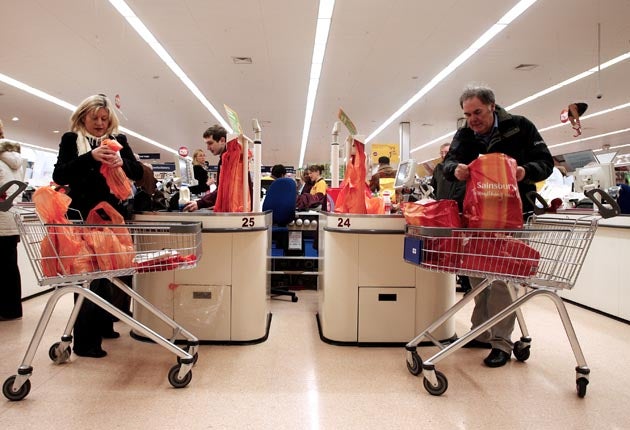Average family £9 a week better off

The average family was £9 a week better off during July following reduced mortgage payments and slowing food and drink inflation, research showed today.
A typical household had £163 a week left for discretionary spending after meeting all of their essential costs, over 6 per cent more than they had in July last year, according to Asda.
The figures reflected a 45.5 per cent decrease in mortgage interest payments compared with July last year as the Bank of England maintained the official rate of borrowing at a record low of 0.5 per cent.
Food and drink inflation is also at its lowest since September 2007.
The data is compared with a period of soaring prices as the cost of oil climbed to peak at around $147 a barrel in the same month last year.
But while some costs have fallen, the report found families were still faced with increases in areas like transport and energy.
Inflation on household utilities was shown to have remained high, with gas bills up 22.7 per cent on last year and electricity 6.8 per cent above.
The report said transport costs had risen for six months in a row and petrol prices hit their highest level since January.
But it said a 0.4 per cent month-on-month decline in food and non-alcoholic drink prices soothed households' purses. Discounts on clothing and footwear in the month also saw prices down 8.1 per cent on the previous year.
Households' outlay on essentials was found to be £5 a week lower in July 2009 compared with a year earlier, while spending power for discretionary items was £9 a week higher.
Asda chief executive Andy Bond warned that people may be reluctant to spend their additional funds.
"As we've seen over the past year, even a small movement in discretionary spend can make a big difference to a household budget.
"However, how people choose to spend their money is still dictated by sentiment, and consumers remain fundamentally cautious about the future."
Join our commenting forum
Join thought-provoking conversations, follow other Independent readers and see their replies
Comments
Bookmark popover
Removed from bookmarks